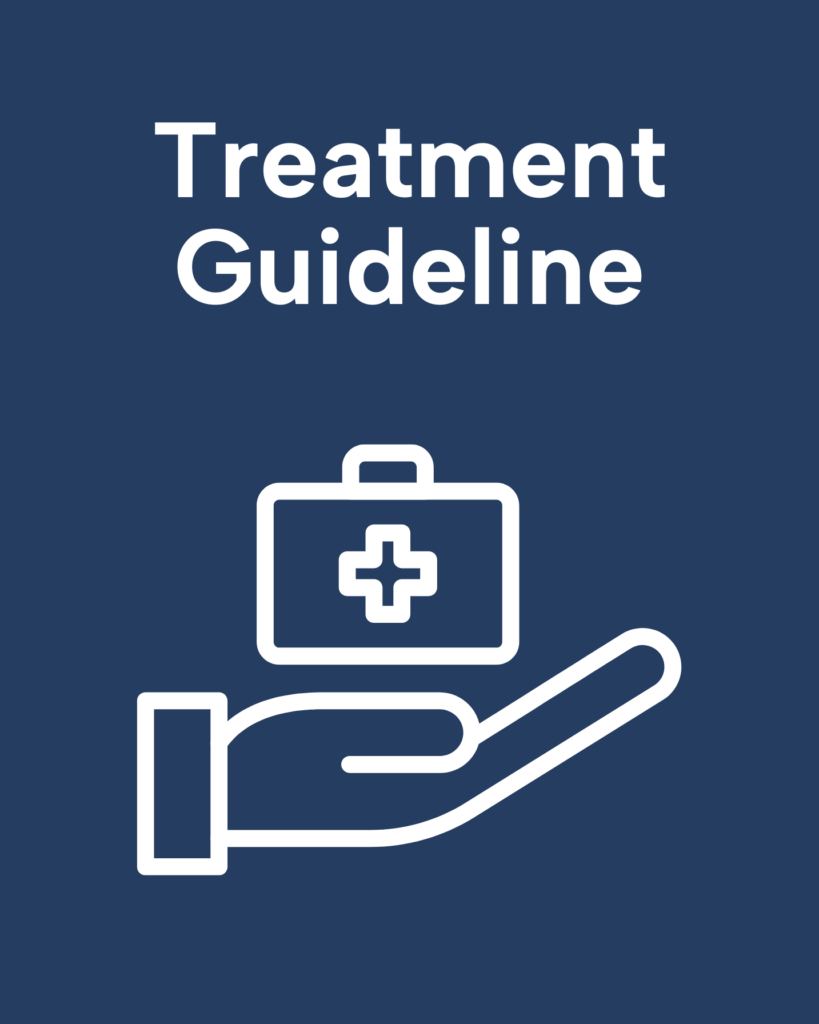Effective Treatments for PTSD: Practice Guidelines from the International Society for Traumatic Stress Studies, Third Edition
Book describes PTSD assessment and intervention practices that are efficacious and provides practical, real-world implementation guidance.
Treatment Guideline Overview
“Grounded in the updated Posttraumatic Stress Disorder Prevention and Treatment Guidelines of the International Society for Traumatic Stress Studies (ISTSS), the third edition of this definitive work has more than 90% new content. Chapters describe PTSD assessment and intervention practices that have been shown to work and provide practical, real-world implementation guidance. Foremost authorities address the complexities of trauma treatment with adults, adolescents, and children in diverse clinical contexts. The book delves into common obstacles and ways to overcome them, when to stop trying a particular approach with a client, and what to do next. Special topics include transdiagnostic interventions for PTSD and co-occurring problems, dissemination challenges, and analyzing the cost-effectiveness of treatments. Prior edition editors: Edna B. Foa, Terence M. Keane, Matthew J. Friedman, and Judith A. Cohen.
New to This Edition:
- Fully rewritten to reflect over a decade of clinical, empirical, and theoretical developments, as well as changes in DSM-5 and ICD-11.
- Increased research-to-practice focus—helps the clinician apply the recommendations in specific clinical situations.
- New chapters on previously covered treatments: early interventions, psychopharmacotherapy for adults and children, and EMDR therapy.
- Chapters on additional treatments: prolonged exposure, cognitive processing therapy, cognitive therapy, combined psychotherapy and medication, e-mental health, and complementary and alternative approaches.
- Chapters on cutting-edge topics, including personalized interventions and advances in implementation science.”
—Description from publisher
Table of Contents
I. Introduction and Background
- 1. Effective Treatments for PTSD: Guiding Current Practice and Future Innovation, David Forbes, Jonathan I. Bisson, Candice M. Monson, & Lucy Berliner
- 2. Trauma and PTSD: Epidemiology, Comorbidity, and Clinical Presentation in Adults, Kristina J. Korte, Tammy Jiang, Karestan C. Koenen, & Jaimie Gradus
- 3. Epidemiology, Clinical Presentation, and Developmental Considerations in Children and Adolescents, Eva Alisic, Rowena Conroy, & Siri Thoresen
- 4. Diagnosis, Assessment, and Screening for PTSD and Complex PTSD in Adults, Jonathan I. Bisson, Chris R. Brewin, Marylene Cloitre, & Andreas Maercker
- 5. Screening, Assessment, and Diagnosis in Children and Adolescents, Lucy Berliner, Richard Meiser-Stedman, & Andrea Danese
- 6. ISTSS PTSD Prevention and Treatment Guidelines: Methodology, Jonathan I. Bisson, Catrin Lewis, & Neil Roberts
- 7. ISTSS PTSD Prevention and Treatment Guidelines: Recommendations, Jonathan I. Bisson, Lucy Berliner, Marylene Cloitre, David Forbes, Tine Jensen, Catrin Lewis, Candice M. Monson, Miranda Olff, Stephen Pilling, David Riggs, Neil Roberts, & Francine Shapiro
II. Early Intervention in Adults
- 8. Early Intervention for Trauma-Related Psychopathology, Meaghan L. O’Donnell, Belinda J. Pacella, Richard A. Bryant, Miranda Olff, & David Forbes
- 9. Early Pharmacological Intervention Following Exposure to Traumatic Events, Jonathan I. Bisson, Laurence Astill Wright, & Marit Sijbrandij
III. Early Intervention in Children and Adolescents
- 10. Preventative and Early Interventions, Justin Kenardy, Nancy Kassam-Adams, & Grete Dyb
IV. Treatments for Adults
- 11. Psychological Treatments: Core and Common Elements of Effectiveness, Miranda Olff, Candice M. Monson, David Riggs, Christopher W. Lee, Anke Ehlers, & David Forbes
- 12. Prolonged Exposure, David S. Riggs, Larissa Tate, Kelly Chrestman, & Edna B. Foa
- 13. Cognitive Processing Therapy, Kathleen M. Chard, Debra L. Kaysen, Tara E. Galovski, Reginald D. V. Nixon, & Candice M. Monson
- 14. Eye Movement Desensitization and Reprocessing Therapy, Francine Shapiro, Mark C. Russell, Christopher W. Lee, & Sarah J. Schubert
- 15. Cognitive Therapy, Anke Ehlers
- 16. Pharmacological and Other Biological Treatments, Jonathan I. Bisson, Mathew Hoskins, & Dan J. Stein
- 17. Combined Psychotherapy and Medication Treatment, Mark Burton, Jessica Maples-Keller, Mathew Hoskins, Yilang Tang, Katarzyna Wyka, JoAnn Difede, & Barbara O. Rothbaum
- 18. E-Mental Health, Catrin Lewis & Miranda Olff
- 19. Complementary, Alternative, and Integrative Interventions, Ariel Lang & Barbara Niles
- 20. Treatment of Complex PTSD, Marylene Cloitre, Thanos Karatzias, & Julian Ford
V. Treatments for Children and Adolescents
- 21. Treatment of PTSD and Complex PTSD, Tine Jensen, Judy Cohen, Lisa Jaycox, & Rita Rosner
VI. Application, Implementation, and Future Directions
- 22. Treatment Considerations for PTSD Comorbidities, Neil P. Roberts, Sudie E. Back, Kim Mueser, & Laura K. Murray
- 23. Building a Science of Personalized Interventions for PTSD, Marylene Cloitre, Zachary Cohen, & Ulrich Schnyder
- 24. Training and Implementation of Evidence-Based Psychotherapies for PTSD, David S. Riggs, Maegan M. Paxton, Sybil Mallonee, Craig Rosen, Shannon Wiltsey Stirman, & Shannon Dorsey
- 25. A Health Economics View, Ifigeneia Mavranezouli & Cathy Mihalopoulos
- 26. The Future of Traumatic Stress Treatments: Time to Grasp the Opportunity, David Forbes, Jonathan I. Bisson, Candice M. Monson, & Lucy Berliner
Treatment Guideline Access
Purchase/Subscription Required
Forbes, D., Bisson, J. I., Monson, C. M., & Berliner, L. (2020). Effective Treatments for PTSD: Practice Guidelines from the International Society for Traumatic Stress Studies, Third Edition. New York: Guilford Press. https://www.guilford.com/books/Effective-Treatments-for-PTSD/Forbes-Bisson-Monson-Berliner/9781462543564
- ISBN: 9781462543571
Date
August 30, 2020
Creator(s)
David Forbes, Jonathan I. Bisson, Candice M. Monson
Contributor(s)
Lucy Berliner
Topics
PTSD
Client Population
Adolescents, Children
Practice & Methods
EMDR Early Intervention
Extent
558 pages
Publisher
Guilford Press
APA Citation
Forbes, D., Bisson, J. I., Monson, C. M., & Berliner, L. (2020). Effective Treatments for PTSD: Practice Guidelines from the International Society for Traumatic Stress Studies, Third Edition. New York: Guilford Press. https://www.guilford.com/books/Effective-Treatments-for-PTSD/Forbes-Bisson-Monson-Berliner/9781462543564
Audience
EMDR Therapists, Other Mental Health Professionals
Language
English
Content Type
Book, Treatment Guideline
Access Type
External Resource





